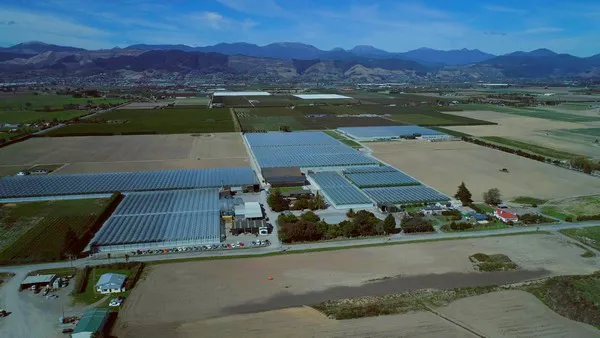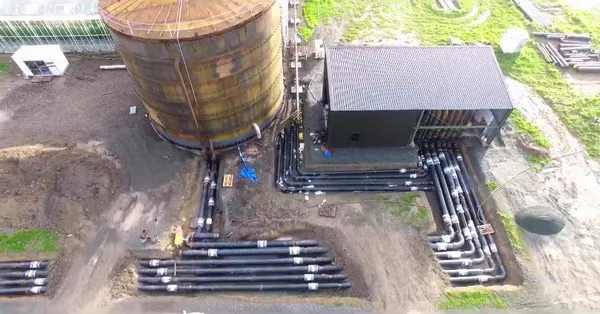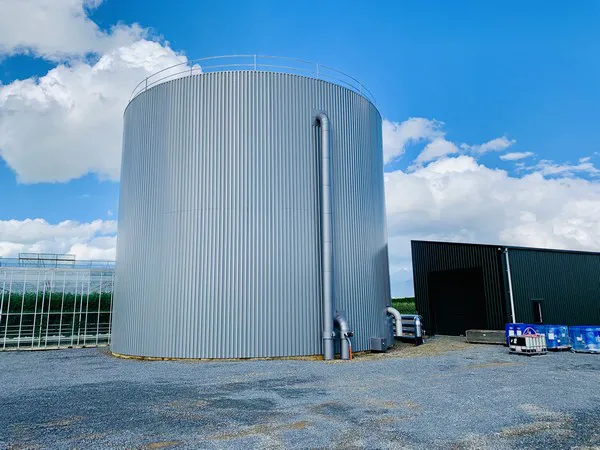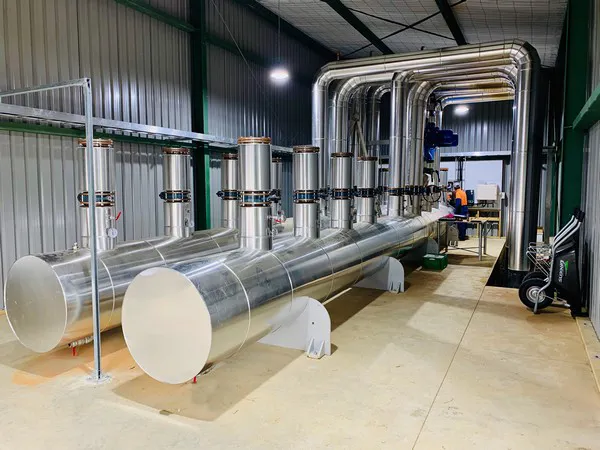Whether it's tomatoes, peppers or eggplants, they all grow at the 13 hectare hothouse of the New Zealand company JS Ewers. Their assortment is completed with a range of outdoor vegetables and melons, grown on 250 hectares of outdoor land. The team shares how the company developed to also be on the forefront of sustainability.
In doing so they collaborated with the Australian consulting & engineering company Enriva. Enriva’s first involvement with JS Ewers was when General Manager Pierre Gargiulo requested an energy assessment of their site, located in Nelson, New Zealand. From there grew a client/consultant partnership focused on modernizing the plant and reducing energy consumption to help ensure their produce is grown sustainably and with minimal carbon footprint.
"It is not enough for JS Ewers to just be a leading supplier of fresh produce in New Zealand, they strive to ensure the crop’s journey from seed to customer follows a sustainable path", the team with Enriva explains. "For over 45 years Nelson’s climate and unique soils have been key to the success of this business. Long sunshine hours, combined with a temperate climate and modern glasshouse facilities create a perfect environment for year-round growing of tomatoes, capsicums and eggplants. Taking steps to reduce their carbon output increases long-term profitability while supporting the climate and environment."

Aerial view of the JS Ewers Nelson site
Organically grown
Because this site has organically grown over several decades, it contains 9 separate greenhouses totaling 10 hectares, which were heated by eight separate coal plants. Decisions related to this method of heating were made based on the fuel options, energy costs, and prevailing industry knowledge at that time. Fast forward to the present era and it was evident that the time was right to make some improvements.
"With great foresight and significant investment, JS Ewers took giant steps forward in modernizing their plant to create energy more efficiently while significantly reducing the impact on the environment", they explain.
Centralized heat distribution
The first major phase of the project saw the full integration of the legacy plant with the implementation of centralized heat distribution which lowered consumption. The overall modernization is at the point required for future connection to zero carbon energy sources. As a result of this project, five coal plants have been decommissioned. It was a huge undertaking with years of planning and construction, requiring 15' x 40’ shipping containers full of materials to be assembled according to the master design. The property was developed from end to end to allow the placement of underground mains, and the site management were exposed to many languages as they worked alongside expert tradesmen from around the globe.

Installation of heat store, distribution building and manifold, underground insulated pipework
 Completed 2ML heat store and Energy Distribution Building
Completed 2ML heat store and Energy Distribution Building
 Energy Distribution Manifold
Energy Distribution Manifold
Increasing costs for growers
However, this story doesn’t end here. "JS Ewers continues to develop and innovate as the use of technology is in the company’s DNA. More and more growers in New Zealand and Australia are looking toward sustainable solutions for energy. Historically, options like gas are becoming less competitive because of increasing cost", Sohum Gandhi, GM of Enriva PTY LTD, explains. Enriva was put in charge of designing and delivering this project. "In New Zealand specifically businesses are subject to a carbon tax which raises the cost of non-renewable energy, such as coal, thereby driving renewable energy outcomes."
“While their legacy plants made sense at the time, in modern terms there are new alternatives available. With the system now ready for renewable energy implementation they’re prepared for the next era."
This is one of the many projects currently run by Australian company Enriva. They help growers in optimizing their energy solutions, from consultancy through to project realization, both in Australia and in New Zealand. An example of this is the Murray River Project (click for video) and a project at a flower grower, implementing biomass solutions (click for video).
"While each country historically has large dependencies on fossil fuels, many growers would like to take the step into a more sustainable direction", Sohum says. "Of course while sustainability is critical for the long term, business profitability is mandatory in the short term. And when the parameters are such that sustainability and profitability align, then projects like these can become a reality."
For more technical information: Sohum Gandhi
Sohum Gandhi
Enriva
info@enriva.com.au
www.enriva.com.au
